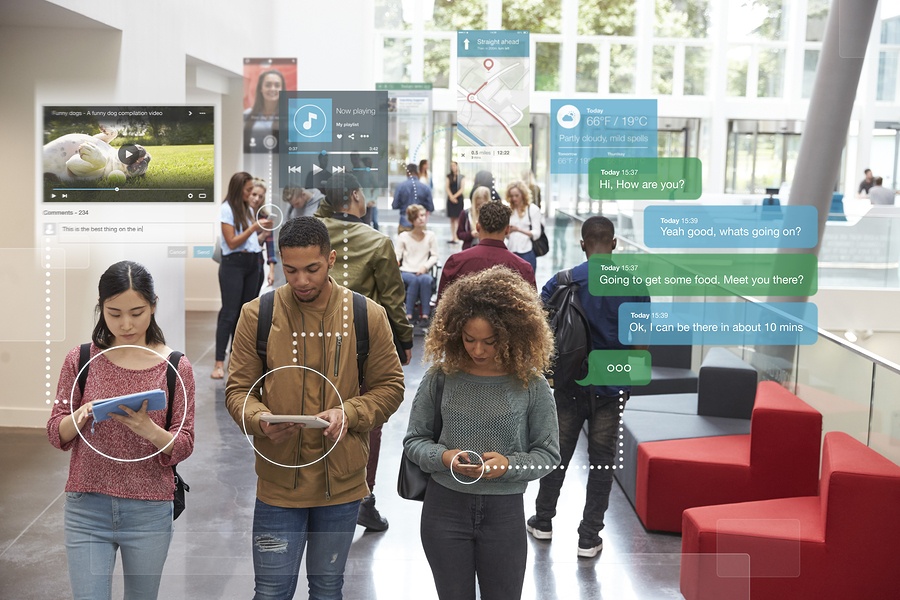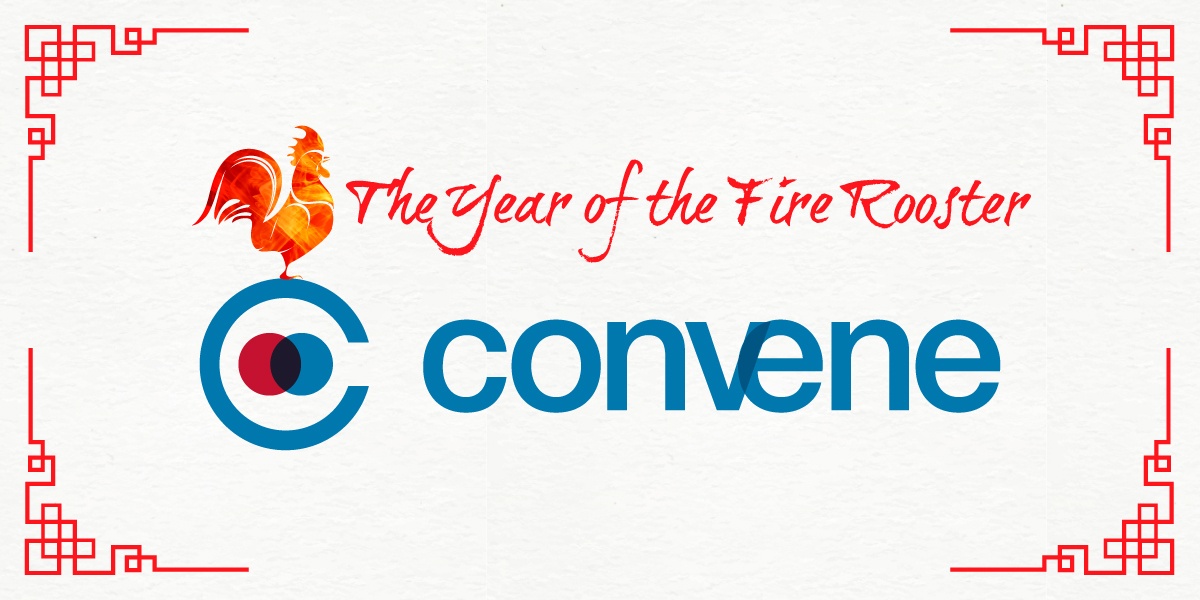Did you know that Mark Zuckerberg (founder of Facebook), Daniel Ek (founder of Spotify), and Brian Chesky (founder of Airbnb) amongst many others are all Millennials?
In our last blog, we talked about who Millennials are (born between 1980 to 1994, some stretch it to 2000) and their key characteristics. Millennials, who are also known as ‘digital natives’, have always been criticised for being lazy, unproductive individuals who spend most of their time on a smartphone or on Facebook, Twitter and Pinterest. However, studies show that Millennials are the most disruptive force in today’s workplace and thanks to their tech-savviness, they are the single biggest factor driving digitalisation of organisations.
So, what is it all about being digital? And how does digitalisation help a company?
Being digital and digital natives
Millennials, unlike their predecessors, have witnessed dramatic and path-breaking technological innovations during their childhood. Thanks to experiencing these radical changes, Millennials have not only developed a unique power of adaptability but also are being adventurous in trying new vocations, business ideas, and technologies. These traits in their character have helped them in thinking out-of-the-box, innovating, and ultimately bringing new disruptive technologies in the workplace. For this generation that believes in online streaming of multimedia content rather than buying CDs and DVDs, buys groceries and lifestyle products online, and are on social media most of their time, it is quite expected that they find traditional workplaces unproductive and boring. Also, Millennials tend to enjoy the free flow of information, flexibility of work and work-life balance, rapid progress, promotions and frequent appreciation from their employers.
The most important issue that we must factor in this discussion is that this generation has grown up with high-speed broadband, smartphones, laptops, tablets, social networking, and instant access to information. For such kind of a generation, which will represent as much as 75% of the workforce by 2025, it is imperative that every organisation needs to adapt themselves and provide workplaces that cater to their needs, comfort, and aspirations. Therefore, today, digitalisation of workplace is not only inevitable but also necessary and critical.
Findings from the Millennial Compass Report, which surveyed 1,293 employees in the U.S., India, China, the U.K., France, and Brazil, provide further insights into Millennials in the workplace:
- Known as born ambitious, more than 40% of Millennials are expected to be in a management position within two years of employment.
- While Millennials have a strong work ethic, they redefine them have a work-life balance.
- When it comes to being loyal to an organization, nearly 50% of Millennials say they plan to depart from their employer after 2 years.
- Millennials would like to see their boss or manager as their “friend,” more as a peer, coach, or mentor.
- The professionals of this generation do not give much weight to titles, and strongly admire those with experience or knowledge over position or power.
What is a digital workplace?
One of the simplest ways of defining a digital workplace is the ability to access a physical workplace virtually by using a connected device anytime and from anywhere. In this workplace, employees are not restricted to a workstation or desk or working hours. With a digital workplace, an employee is always connected and can access company data, information and attend meetings remotely. In short, whether it is working individually or collaboratively with a team, an individual can perform all work-related tasks and activities remotely from anywhere and anytime.
While most companies today have established great physical infrastructure, and do provide a lot of benefits to their employees, there aren't that many who are truly ‘digital’ when it comes to their workplace. A digital workplace is as much about using modern devices and innovative technology as is about establishing an organisational culture and work ethic that both employers and employees are proud of. A modern workplace going digital is probably more about adopting a radically different new-age mindset that celebrates innovation, lets employees take risks and provides them with all necessary support to perform their tasks and achieve their professional and personal goals.
The perks of the digital workplace
Mobile working – In this era of high speed internet, online meeting platforms, intra and inter office communications and mobile devices, employees are adopting and in many cases, preferring remote jobs and the mobile working arrangements. This results in decentralisation of the workplace. As suggested by a study done by Cisco, mobile working “brings with it a huge potential to improve workforce productivity, improve staff motivation, flexibility and retention".
BYOD (Bring Your Own Devices) – This has become popular amongst professionals and organisations these days. Not only does BYOD reduce IT overheads and costs for an organisation, but gives the employee to use a device of their choice and within the remits of organisational rules and regulations.
Flexibility - While Baby Boomers and Gen Xers want job security and structure, Millennials prefer employability and flexibility. With the absence of flexibility at your organisation, there is a high probability that your Millennial professionals will seek job options outside.
Most organisations today operate in a global and increasingly complex business environment. This means, not only have business processes become more complex, but employees across levels and grades are also facing business environments and challenges that they have never faced before. Employees need to be mobile and travel ready, work out of different business locations and be part of or manage teams that are dispersed across the globe. In this context, providing flexibility to employees is a priority for all organisations. Moreover, unless required for a role or otherwise, gone are the days when employees need to sit at one place and use immobile desktop computers. Laptops have been the primary choice of computing device over the last many years now. However, the new genre of smart mobile devices are fast outnumbering laptops. Everyone has started preferring smart mobile devices that are not short of computing power but are easy to carry and operate.
Less frustration among employees and more productivity and creativity – When a company has happy professionals who have the option to use their own devices, have flexible working conditions and can work even when they are mobile, it results in more productivity and creativity. Also, millennials are social animals and they collaborate best on social platforms. Connecting with colleagues on instant messaging platforms, video collaboration can boost workplace productivity. There is enough and more evidence that this increased productivity of employees positively impacts an organisation’s overall performance.
Saving on the cost of infrastructure - Setting up office space and maintaining the same in urban areas can be very expensive. Therefore, when a company introduces digitalisation of workplace and encourages mobile working, the potential of reducing the cost of office space increases. However, an organisation needs to ensure that employees can easily work from a remote location and collaborate seamlessly with colleagues across the world without impacting productivity.
Less attrition - As mentioned earlier in the article, Millennials often change their present job within 2 years. Therefore, to retain them, companies should offer the option of mobile working which has a positive impact on employees and keep them motivated. In fact, all the benefits that come with digitalising a workplace are directly correlated to an employee’s happiness and job satisfaction, which in turn will lead to less attrition.
Millennials are changing the workplace directly and indirectly, which is helping keep companies relevant. In another ten years, there is bound to be more change when the next generation enters the work force. In these cases change ought to be seen as a good thing for a company as it promotes a 'people first' culture to consumers and business who care about who they purchase from or do business with.
Keep an eye out for our next blog on why a digital work culture is important to all generations.








